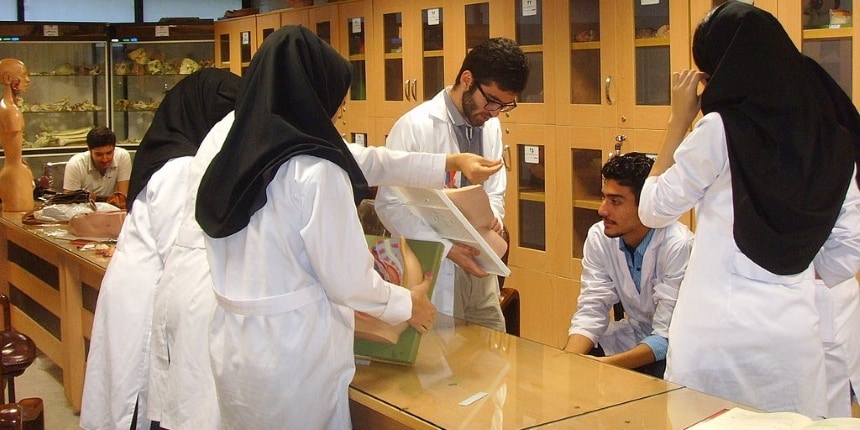NEET UG Counselling 2024: MCC allows over 1,800 candidates to ‘convert’ to NRI category
Musab Qazi | November 8, 2024 | 01:00 PM IST | 3 mins read
Most changes in status took place in the first round of MCC NEET counselling; in September, the Supreme Court had described the NRI quota in MBBS admissions as a ‘fraud’
NEET 2026 Free Mock Test with Solutions
Download the NEET 2026 Free Mock Test PDF with detailed solutions. Practice real exam-style questions, analyze your performance, and enhance your preparation.
Download EBook
NEW DELHI: Even as the Supreme Court came down heavily on non-resident Indian (NRI) quotas at medical colleges, as many as 1,846 MBBS aspirants got their nationality 'converted' from Indian to NRI during the course of the NEET UG 2024 counselling to avail of this reservation.
While the majority –1,037 – of these conversions took place in the first round of undergraduate admissions, the second and third rounds saw 453 and 356 students, respectively, obtain the NRI status on a provisional basis, reveal the details published on the Medical Counselling Committee's admission portal, mcc.nic.in. No such conversion happened during the stray vacancy round.
Having its origins in the Supreme Court's 2002 TMA Pai judgement, the NRI quotas allow expat students, and in some states, even those sponsored by their NRI relatives, to pursue medical education in the country without having to compete with the general pool of candidates.
However, this provision in MBBS admissions has been criticised for favouring moneyed students and those with kin abroad in lieu of more deserving meritorious candidates and opening up the doors to corruption and forgery.
NEET Counselling 2024: Supreme Court on NRI quota
In September, while upholding a Punjab and Haryana High Court ruling that struck down the Punjab government's new rules allowing relatives of NRIs to be included in the NRI quota, Supreme Court called the reservation a “fraud” and a “means of making money”.
The apex court had observed that such steps give way to back-door entry and force meritorious students out of the admission process.
Many in the medical fraternity have also questioned the propriety and the method for granting NRI admissions.
"It is just a legal way of backdoor entry into the medical colleges. If proper scrutiny of documents is carried out, more than 70% admission will be found illegal. Fake NRI documents are made for Rs 5 to 15 lakh by counsellors. All this is done in broad daylight every year and every medico out there knows about this but nothing can be done about it," said NEET PG aspirant Dr Aasif Khan, who completed his MBBS from Krishna Vishwa Vidyapeeth Deemed To Be University, Karad, Maharashtra.
Also read Low score, pay more! NEET UG, PG tail-enders bag seats through NRI quota
Dr Noorullah Shadan, ENT surgeon at a private hospital in Hyderabad, echoed him. “Kids of rich people can afford to convert their nationalities from Indian to NRI to get admission in medical courses. They can afford to spend more than Rs 4 four crore to get admission to postgraduate medical courses. It gives a message to the aspirants that merit does not account for much and if you have the money you can get anything,” he said.
A few states like Uttar Pradesh do not have provision for an NRI quota in medical admission at all and others have set more stringent eligibility conditions. Still others replicate the broader central MCC policy, where simply having a close NRI relative willing to sponsor the fee makes the candidate eligible for the quota.
It also allows for the conversion of a candidate's nationality category from Indian to NRI at any stage of admission, if they find an NRI sponsor.
Also read Karnataka wants 5% NRI quota in government medical colleges to raise funds; students oppose
A candidate can claim the benefit of the NRI category through NRI sponsorship by submitting documents showing that the sponsor is an NRI and is related to the candidate and willing to pay the fee; candidates also need an embassy certificate of the sponsor.
MCC NEET UG Counselling: NRI quota policy
MCC states that the conversion of a candidate’s nationality from ‘Indian’ to ‘NRI’ is provisional, pending verification of documents by the allotted college at the time of reporting. The sponsor's embassy certificate may also be sent to the ministry of external affairs or the respective high commission for further verification. Those submitting fake documents can face legal action, says MCC.
The eligibility criteria for NRI candidates and the quantum of reservation for them varies across the states. Four states, Rajasthan, Haryana, Goa, Himachal Pradesh, and two Union Territories (UTs), Chandigarh and Pondicherry, have NRI quotas in their government medical colleges.
On September 10, the Punjab and Haryana High Court trashed Punjab’s August 20 move expanding the ambit of the NRI quota to include distant relatives "such as uncles, aunts, grandparents, and cousins" under the 15% reservation designated for NRI admissions in medical colleges.
Follow us for the latest education news on colleges and universities, admission, courses, exams, research, education policies, study abroad and more..
To get in touch, write to us at news@careers360.com.